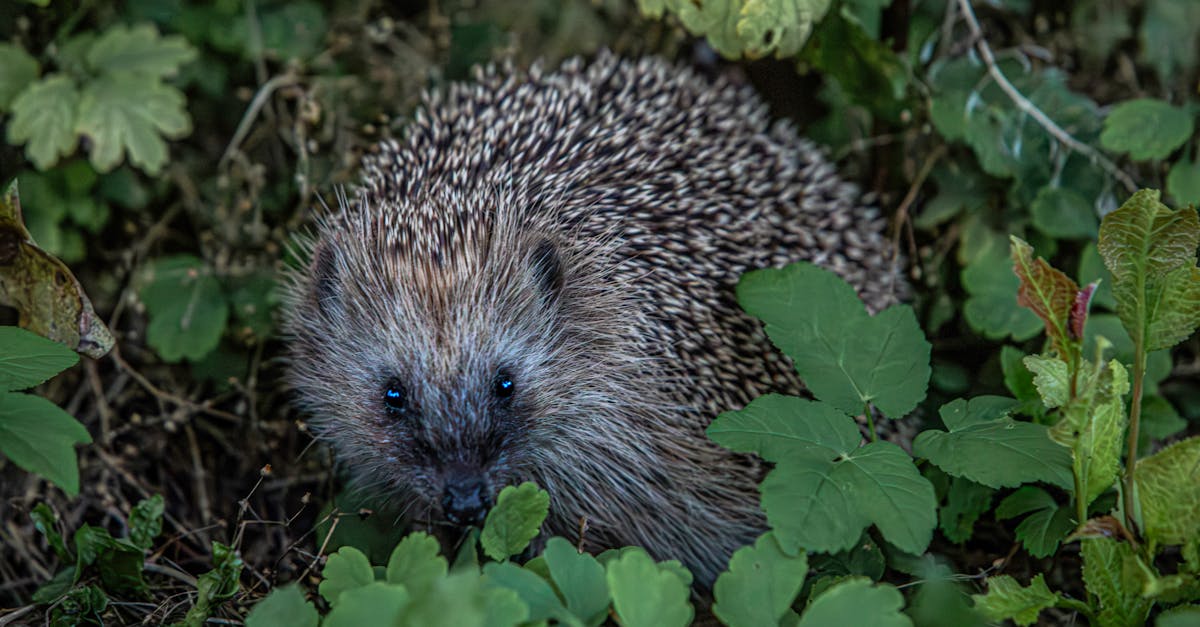The Unexpected Journey of Hedgehogs into Our Homes
Picture this: a small, spiky creature scurrying through the underbrush, foraging for insects and fruits. It’s no surprise that hedgehogs have long been a part of the wild tapestry of nature. But something surprising happened over the past few decades—these nocturnal wanderers have found a place in our homes and hearts as beloved pets. The reality is, the evolution of hedgehogs from wild animals to domestic companions is a fascinating journey worth exploring.
Ever wonder why hedgehogs have become such popular pets? It’s interesting how these creatures, once purely wild, have adapted to domestic life. This blog post delves into the history, benefits, and challenges of keeping hedgehogs as pets, offering insights and practical advice for current and potential hedgehog owners.
The Historical Context: From Wild Wanderers to Domestic Darlings
Early Encounters with Hedgehogs
Hedgehogs have been around for millions of years, with fossil records dating back to the Eocene Epoch. These small mammals are native to Europe, Asia, and Africa, and have been depicted in ancient art and literature. It hit me that, despite their long history, it’s only recently that hedgehogs have been considered as pets.
In ancient times, hedgehogs were often seen as symbols of protection and fertility. The Romans, for example, used hedgehog spines to card wool and even believed that hedgehogs could predict the weather. However, the idea of keeping a hedgehog as a pet would have seemed strange to them.
The Modern Shift
The shift from wild to domestic began in the late 20th century. Studies show that the African Pygmy Hedgehog, a hybrid of the Algerian and Four-toed hedgehogs, became the most popular species for domestication. This might sound strange, but the domestication of hedgehogs was partly fueled by their unique appearance and manageable size, making them suitable for indoor living.
Why Hedgehogs? The Appeal of These Quirky Pets
Unique Characteristics
It’s interesting that hedgehogs have several traits that make them appealing as pets:
- Low Maintenance: Hedgehogs require less attention than more common pets like dogs and cats. They can be left alone for longer periods, making them ideal for busy individuals.
- Hypoallergenic: Hedgehogs are less likely to cause allergies, which is a significant advantage for people with pet allergies.
- Quiet Nature: Hedgehogs are relatively quiet, making them suitable for apartment living.
The Emotional Connection
Personally, I’ve found that hedgehogs can form a unique bond with their owners. They may not be as overtly affectionate as dogs, but they have their own way of showing trust and comfort. I guess you could say that the joy of watching a hedgehog explore and interact with its environment is a reward in itself.
The Challenges of Hedgehog Ownership
Health Concerns
You’d be surprised at the specific health needs of hedgehogs. They are prone to several health issues, including:
- Obesity: Hedgehogs can easily become overweight if not given the proper diet and exercise.
- Dental Problems: Their teeth require regular checks to prevent issues like gum disease.
- Skin Conditions: Hedgehogs can suffer from mites and fungal infections, which require prompt treatment.
Behavioral Traits
It’s funny how hedgehogs, despite their small size, have distinct personalities. Some are more social, while others can be quite shy. As someone who has spent time with various hedgehogs, I’ve noticed that understanding their behavior is key to a successful pet-owner relationship.
Practical Tips for Prospective Hedgehog Owners
Setting Up the Habitat
Imagine if you were setting up a new home for a tiny, spiky friend. Here’s a quick guide:
- Cage Size: Ensure the cage is spacious enough for the hedgehog to move around comfortably.
- Temperature Control: Hedgehogs require a warm environment, ideally between 72-80°F.
- Hiding Spots: Provide plenty of hiding spots to make your hedgehog feel secure.
Diet and Nutrition
A little-known fact is that hedgehogs are omnivores. Their diet should include:
- High-Quality Cat Food: It provides a good base of protein and fat.
- Insects: Mealworms and crickets are great for added protein.
- Fruits and Vegetables: Offer these in moderation as treats.
Handling and Interaction
It’s clear that handling your hedgehog regularly helps in building trust. Start by letting them explore your hand and gradually increase the interaction time. Always handle them gently to avoid stress.
The Broader Impact: Hedgehogs in Popular Culture
Media Representation
Hedgehogs have made their mark in popular culture. From the iconic Sonic the Hedgehog video game character to various children’s books, these creatures have captured the imagination of many. It goes to show how their unique appearance and behavior have made them endearing to a broad audience.
Conservation Efforts
While hedgehogs are popular pets, it’s important to remember their wild counterparts. Conservation efforts are crucial in protecting hedgehog populations in their natural habitats. Supporting these initiatives helps ensure that wild hedgehogs continue to thrive.
Final Thoughts: Is a Hedgehog the Right Pet for You?
I’d like to share a final thought: owning a hedgehog is a unique and rewarding experience, but it comes with its own set of challenges. It’s interesting that, despite their small size, hedgehogs require a significant commitment in terms of care and attention.
If you’re considering a hedgehog as a pet, here are a few questions to ponder:
- Are you prepared for the specific health and dietary needs of a hedgehog?
- Do you have the time to interact with and handle your hedgehog regularly?
- Can you provide a warm and safe environment for your new pet?
Speaking from experience, the joy of owning a hedgehog far outweighs the challenges, provided you are well-prepared and informed. I was struck by how much these little creatures can enrich our lives, offering a unique companionship that is both fulfilling and fascinating.
Call to Action
If you’ve decided that a hedgehog might be the right pet for you, take the next step by researching reputable breeders or adoption centers. Ensure you have all the necessary supplies and knowledge to provide a loving and healthy environment for your new spiky friend.
For those who already own hedgehogs, share your experiences and tips with fellow enthusiasts. The more we learn from each other, the better we can care for these unique pets.
In the end, the journey from wild to domestic is a testament to the adaptability and charm of hedgehogs. Whether you’re a seasoned owner or a curious newcomer, there’s always something new to discover about these fascinating creatures.











